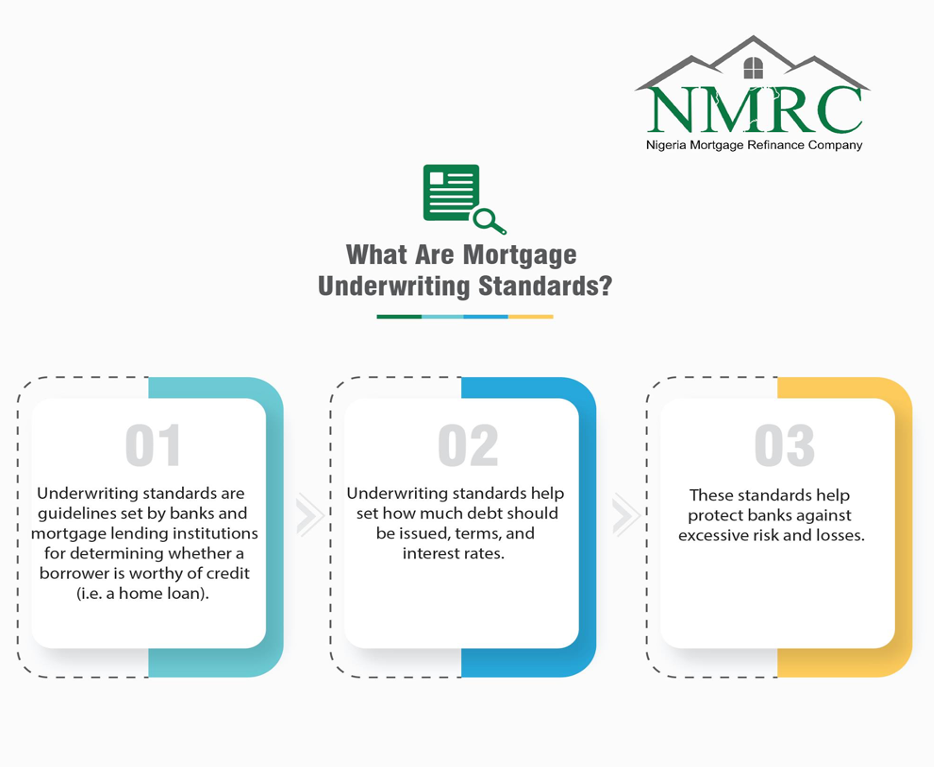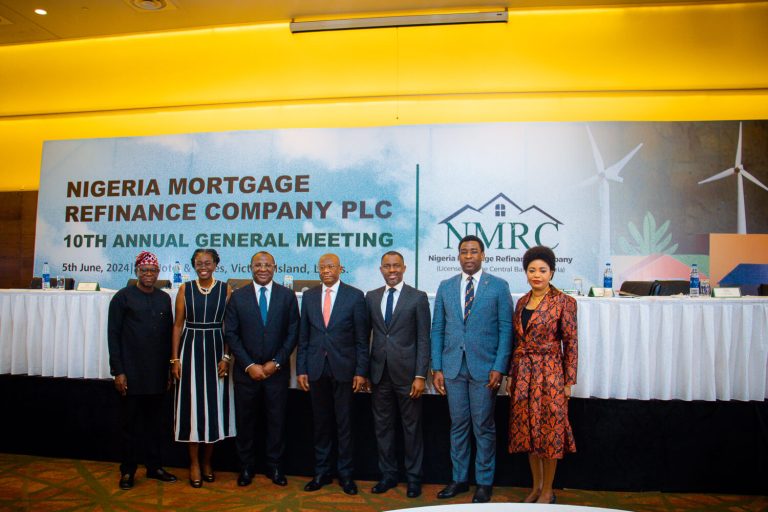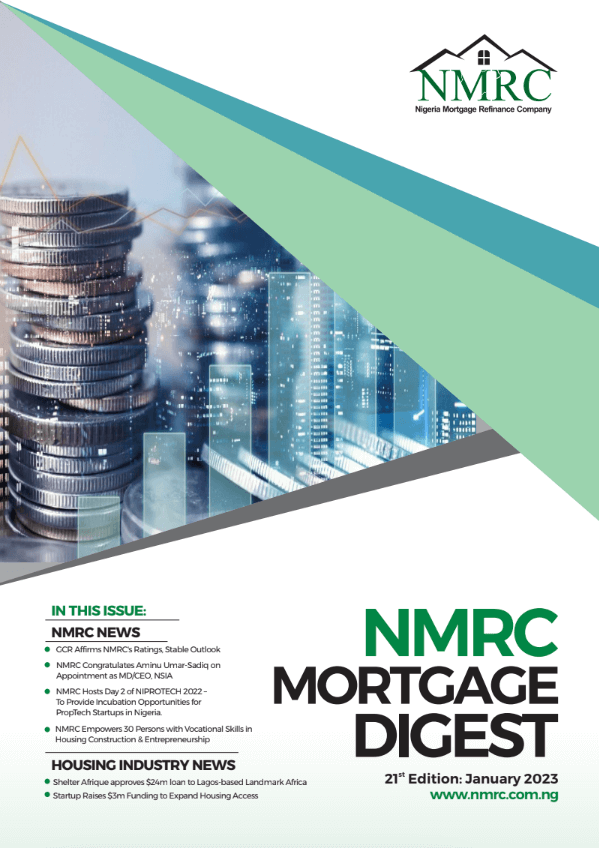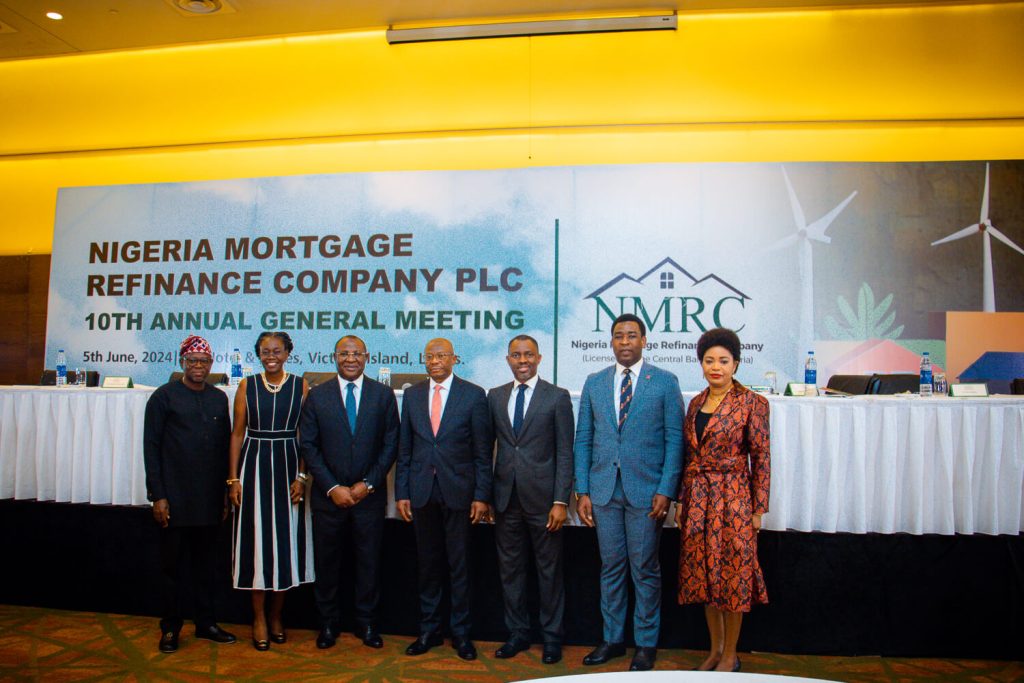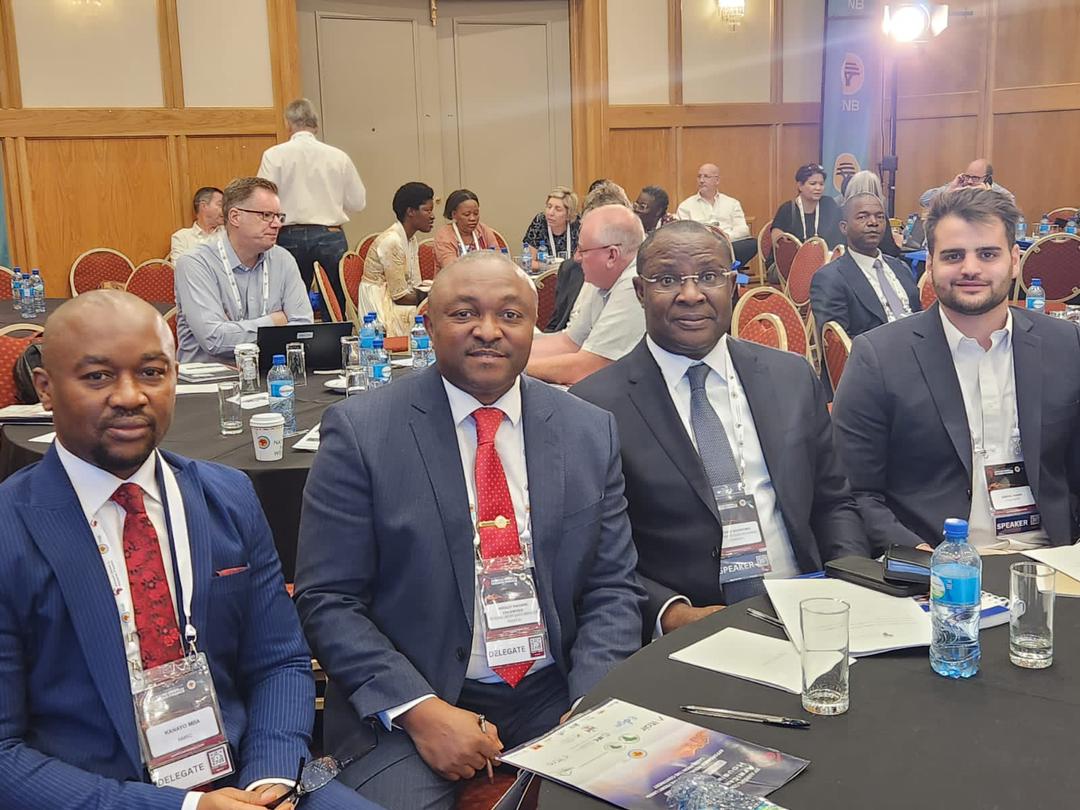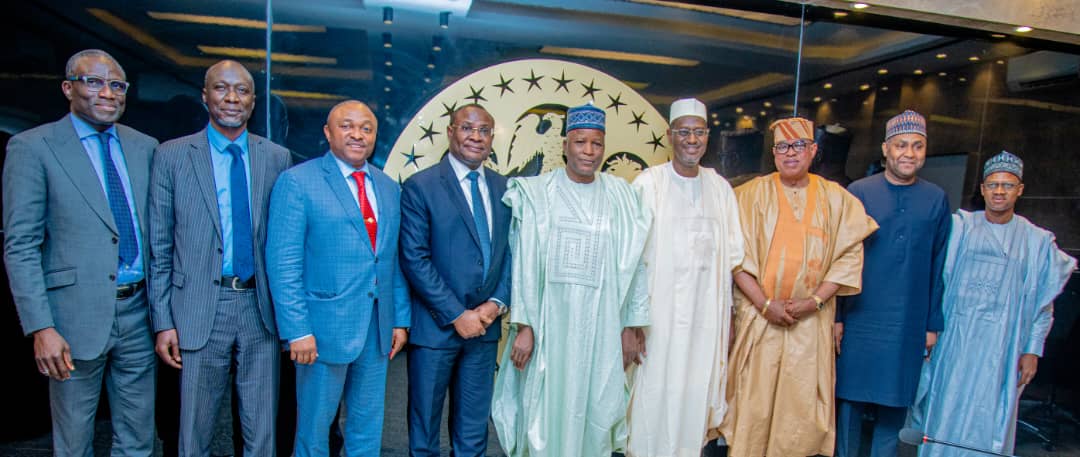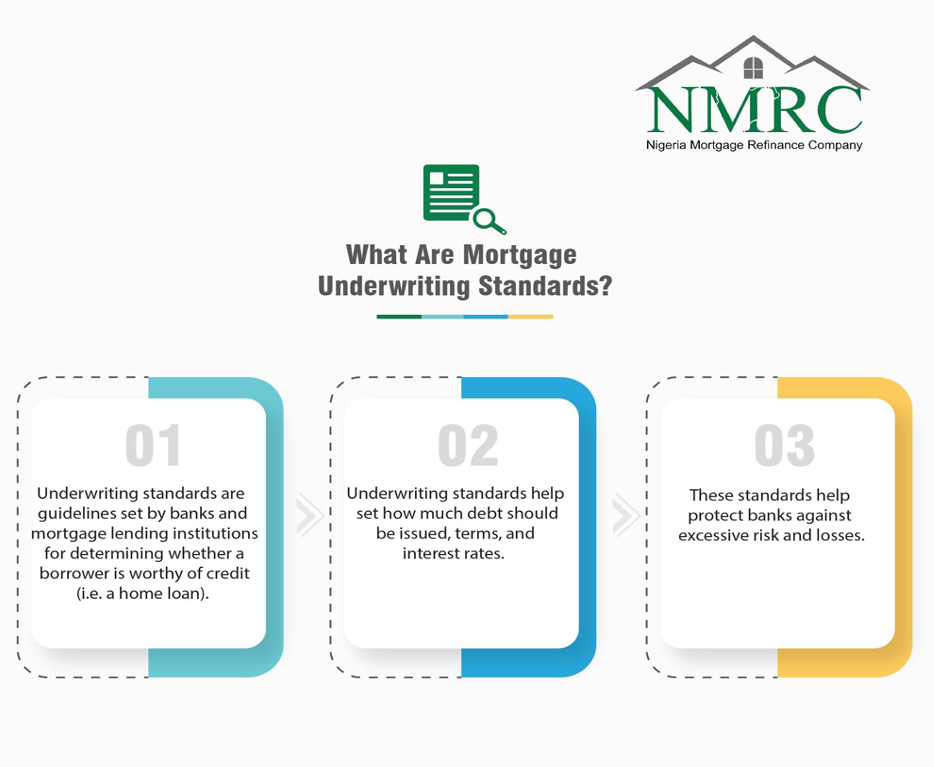
Mortgage Underwriting standards are guidelines to ensure safe and secure loans are issued and maintained. They help to set benchmarks for how much loan a person qualifies for, the terms of the loans, and the interest rates to apply.
As part of its housing market reform activities, the NMRC worked with key industry stakeholders, including the Central Bank of Nigeria (CBN), the Mortgage Bankers Association of Nigeria (MBAN), the Federal Mortgage Bank of Nigeria (FMBN), and the Nigeria Deposit Insurance Corporation (NDIC) to develop and streamline mortgage underwriting standards to widen the net of potential borrowers and enhance financial inclusion.
The goal of the Uniform Underwriting Standards is to promulgate mortgage lending standards and procedures within the Nigerian mortgage market, thereby facilitating improved access to housing finance; and develop and promulgate criteria for acceptable mortgage loans, including payment performance, financial terms, legal contract terms, mortgage loan product designs, mortgage loan underwriting criteria, and the contents of mortgage loan documents.
Lending standards promote efficiency and mitigate the legal and operational risks inherent in mortgage lending by ensuring quality collateral, adequate property title, proper registration, enforcement of legal mortgages, and maintenance of efficient collection processes.
The standards balance the requirements of responsible finance with lenders’ needs to enforce loan contracts. NMRC’s goal is to act as a catalytic and focused advocate to address the issues of standardization and effective risk management.
The standards, which all NMRC member mortgage lending institutions now use for processing mortgage applications, promote uniformity and efficiency, and mitigate mortgage financing risks.
Currently operational are Uniform Underwriting Standards (UUS) for the following sectors of the economy: The Formal Sector, The Informal Sector, Non-interest Banking, and Diaspora Nigerians.
